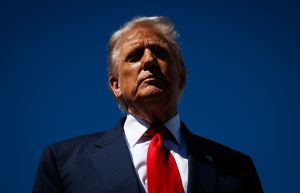
Israeli Prime Minister Benjamin Netanyahu slammed International Atomic Energy Agency (IAEA) Chief Raphael Grossi over the latter's remarks calling for attacks on Iran's nuclear facilities would be considered illegal.
On Saturday, Grossi visited Tehran to address deadlocked negotiations over renewing its 2015 nuclear deal with global power. He said that any military attack on nuclear facilities is "outlawed."
Benjamin Netanyahu Slams IAEA Chief
The IAEA chief's answer was in response to a reporter's question regarding threats that Israel and the United States made where they would attack Iran's nuclear facilities. On the other hand, Tehran argued that its nuclear program is peaceful in contrast with other nations' claims.
In a statement on Sunday, Netanyahu told his cabinet that Grossi is a "worthy person who made an unworthy remark." He questioned why such attacks would be considered outside the law, specifically asking if Israel was forbidden from defending itself.
The IAEA said that Grossi received sweeping assurances from Iran that the Middle Eastern nation would assist the long-stalled investigation of uranium particles found at undeclared sites and would work on re-installing removed nuclear monitoring equipment, as per the Voice of America News.
During Netanyahu's remarks, he noted the Jewish festival of Purim, which is set to take place next week, when roughly 2,500 years ago, a certain persecutor arose in Persia that sought to exterminate the Jews.
The Israeli prime minister said that at the time, they failed to reach their goals, noting that the same would happen today. His comments referred to the efforts of Haman, the villain of the Bible's Book of Esther.
The talks between Grossi and Iranian officials came as Uranium particles enriched up to 83.7% were discovered at Tehran's underground Fordo plant, roughly 100 kilometers south of the country's capital. This comes as the needed enrichment for producing an atomic bomb is 90%.
Iran's Nuclear Capabilities
The previous agreement, known as the Joint Comprehensive Plan of Action (JCPOA), limited Tehran's uranium stockpile to 300 kilograms and only allowed enrichment up to 3.67%, enough to power a nuclear power plant, according to the Times of Israel.
In 2018, the United States made a unilateral withdrawal from the accord, resulting in a series of attacks and escalations by Tehran over its program. Iranian officials denied wanting to acquire more atomic weapons and argued that it had not attempted to enrich uranium beyond 60% purity.
In response to the discovered enriched uranium of more than 80%, Tehran said that "unintended fluctuations" occurred during the enrichment process. The IAEA"s discovery came after the country substantially modified an interconnection between two centrifuge clusters enriching uranium, something that it did not declare to the IAEA.
Iran's latest statement on working with the IAEA marks the possibility of improved relations and staves off a Western push for another resolution that would force Iran to cooperate. Authorities also said that Iran expressed readiness to provide additional information and access to address various safeguard issues, said Yahoo News.
Related Article: China's Growth Target Amid Economic Recovery Efforts
© 2026 HNGN, All rights reserved. Do not reproduce without permission.








